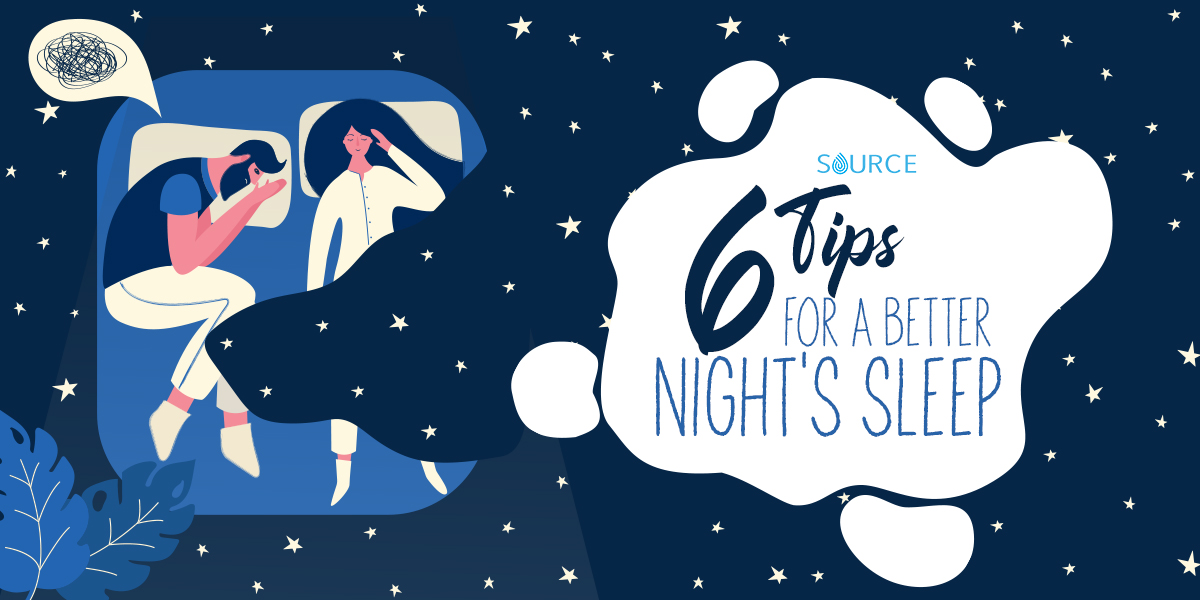CBD Oil for Health
How to Sleep Better: 6 Tips to Take to Bed
As a CBD company, we’re often asked if there are tips on how to sleep better with CBD.
We’re big fans of sleep. After all, you need it to survive. But not only that – sleep helps keep your immune system health, lowers your risk for serious health problems, like diabetes and heart disease, helps reduce stress and improve your mood, and helps you think more clearly.
So, how are you sleeping at night? And is there anything you could be doing to make it better?
How to Sleep Better: 6 Tips
But as promised… here’s how to sleep better at night.
1. CBD for Sleep?
Now, let’s start by saying that we don’t make claims about CBD here. We’re not telling you definitively that CBD will help you sleep better.
What we can tell you, though, is that, when it comes to the science of CBD for sleep, studies have been done.
For example, in a study done in 2019, 72 participants presenting with anxiety or poor sleep were given CBD to determine whether CBD helps improve either in a clinical population. And the results are promising. For more than half (66.7%), sleep got better with CBD.
In another study, this one done on rats, researchers found that the administration of CBD appears to increase total sleep time, in addition to increasing sleep latency. And yes, we recognize that we’re not the same as rats, but the research is important none-the-less.
According to these studies, taking CBD on a regular basis may improve your sleep, especially when taken constantly, and especially in the first month.
2. Ditch the Blue Light
Your television and your smart phone, 2 things you probably look at before bed, give off something called blue light. Blue light wavelengths are everywhere and surround us. In fact, they’re the reason the sky appears blue. They’re beneficial during daylight hours because they boost attention, reaction times, and mood.
The problem is, at night, blue light throws you body’s biological clock – your circadian rhythm – out of whack. Too much blue light, especially as you’re getting ready to go to bed, can keep you awake. It blocks a hormone called melatonin that makes you sleepy, so your body isn’t actually sure it’s time to shut off.
The easiest way to lower your exposure to blue light is to turn off your smartphone, TV, and other gadgets well before bedtime – start reducing your time 2-3 hours before.
3. Speaking of Melatonin…
Melatonin is a hormone your body produces naturally. It doesn’t make you sleep, but as the melatonin levels rise in the evening, this tells your body it’s time to relax and helps promote sleep.
There are certain things that can impact your body’s production of melatonin:
- stress
- smoking
- exposure to too much light at night (including blue light)
- not getting enough natural light during the day
- shift work
- age
Several studies show that melatonin can be effective for those having trouble sleeping, particularly for things like jet lag or shift work.
It’s recommended that you start with a lower dose (0.5–1 mg) taken 30 minutes before bed. If that doesn’t work, try increasing the dose to 3–5 mg. The goal is to find the lowest dose that works for you.
4. Exercise
There’s been a ton of research done on how to sleep better with exercise. Studies prove that getting the body up and moving can significantly improve your sleep quality, as well as overall health!
As little as 30 minutes of moderate aerobic exercise may be all you need to see a difference in your sleep quality that same night.
What time is best? There’s no one universal time that exercise is best to help promote sleep, but experts do agree that exercise in the morning or the afternoon stimulates earlier melatonin release and shifts the circadian rhythm forward. That said, research does note that evening exercise may negatively affect sleep quality for early birds, but not for night owls.
So, do some yoga, go for a run, take your pup for a nice hike in the woods. Chances are, you’ll sleep better tonight!
5. A Little Herbal Help
There are several different herbs that are said to help relax the mind and help you fall asleep faster.
For sleep, mix your CBD with valerian root tea.
- Valerian root is a well known natural sleep aid. Valerian root interacts with aminobutyric acid (GABA), a chemical messenger in your brain and nervous system. Research tells us that low GABA levels related to acute and chronic stress can lead to anxiety and low-quality sleep, so increasing them can help improve your sleep.
- Lavender works as a gentle sedative, to increase relaxation and calm, and help bring about sleep. That’s why people swear by lavender essential oil in a diffuser at bedtime, or by sachets of dried lavender under their pillow.
- Chamomile is probably the most famous for sleep. Chamomile is regarded widely as a mild tranquilizer and a cup of chamomile tea at bedtime can help to encourage a healthy sleep cycle and can improve sleep quality.
6. Watch What You Eat
Have you heard those stories about people eating random stuff before bed and having weird dreams at night? Well, there’s some truth to it – or at least the connection between what you eat before bed and how you’ll sleep.
These are some to try before bed:
- Kiwi – Kiwi contains tons of different sleep promoting vitamins and minerals, along with lots of antioxidants. Plus, they benefit your digestive health, reduce inflammation, and lower your cholesterol, all of which can help you fall asleep faster and get better rest!
- Almonds – rich in melatonin, magnesium, and calcium.
- Bananas – great source of potassium, magnesium, and tryptophan.
- Milk – contains tryptophan, calcium, vitamin D, and melatonin. And no, it doesn’t need to be warm – that’s just nostalgia speaking.
- Cheese – like milk, cheese contains sleep-promoting calcium and tryptophan.
- Fatty fish – while tuna may not be your go-to bedtime snack, the combination of omega-3 fatty acids and vitamin D in fatty fish can help boost sleep quality because they both increase the production of serotonin.
Avoid caffeine, high fat foods, and alcohol.
How to Sleep Better: Final Thoughts
There are plenty of different ways to get a better night’s sleep. If you’re tossing and turning at night, and waking up groggy, take these 6 tips on how to sleep better to bed. We see sleep in your future… goodnight.

